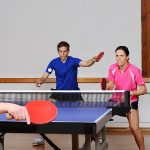Sports Team's Success
360 Mental Skills Development - Six Week Programme
Initial Meeting
Evidence Based Assessment
Development and Delivery
One to One Support
Follow Up Session
Workshops
One single workshop can help your team to overcome a particular challenge in a short period of time. Majority of the workshops will consist of an hour of classroom session and an hour of on-field training to transfer mental skills into their game.
Coaches will be guided on how they can consistently emphasize the use of the new mental skills by giving athletes the opportunity to practice these skills in training.
Building Confidence in Sports Performance
Confidence is the belief in one’s ability. The study of sport psychology offers many different strategies such as visualisation, self-talk, thought reconstruction and many other mental skill to build self-confidence and sports-confidence.
This workshop will give athletes the opportunity to explore their deepest fears and learn to face them with undying belief in their ability. Every individual in the team may have different ways of building confidence. The aim of the workshop is to improve every team member’s self-confidence and the confidence they have in their team
Resilience in Sports Performance
Resilience is the ability to overcome difficult situations while using minimal mental resources. This includes the ability to over adversity, bounce back from mistakes and rebound from difficult situations effortlessly.
Sports situations often change drastically from one moment to another. Resilience strategies may include self-awareness, mental flexibility, emotional regulation, positive thinking and effective communication. The aim of this workshop is to teach athletes how to use different strategies to build resilience by exposing them to situations in training.
Manifesting Your Optimal Performance Zone
Every single athlete has an ‘optimal performance zone’ that they can learn to manifest anytime for any particular competition. The aim of this workshop if to cultivate self-awareness and develop strategies around existing individual strengths.
Mindfulness Meditation for Athletes
Mindfulness is the ability to be fully present in the moment. Athletes often experience ‘flow’ states where they are fully engrossed in the activity without any worry about the outcome. The aim of this workshop will be to teach athletes different mental exercises (including mindfulness mediation) that will allow them to experience flow states in training and competitions.
Overcoming Performance Anxiety
Performance anxiety is one of the biggest challenges for athletes and coaches. Many external factors such as ‘people watching’ or ‘playing a higher ranking team’ can contribute to the existing ‘fight or flight’ response that athletes may face during any competition.
This workshop aims at exploring internal and external factors that contribute to performance anxiety and using mental resources to build strategies for each of these factors.
Each weekly workshop as part of the 360- Mental Skills Development programme will last between 1 to 2 hours, depending on the aims of each workshop.
The 360 Mental Skills costs £1500 (Excluding Travel) for the entire six week package. Online Workshops will cost £250 per workshop. For specific requirements and quotes, please email Sarah on sarah@sarahmajid.com
Workshops can be delivered online via Zoom. Please contact me for more information






